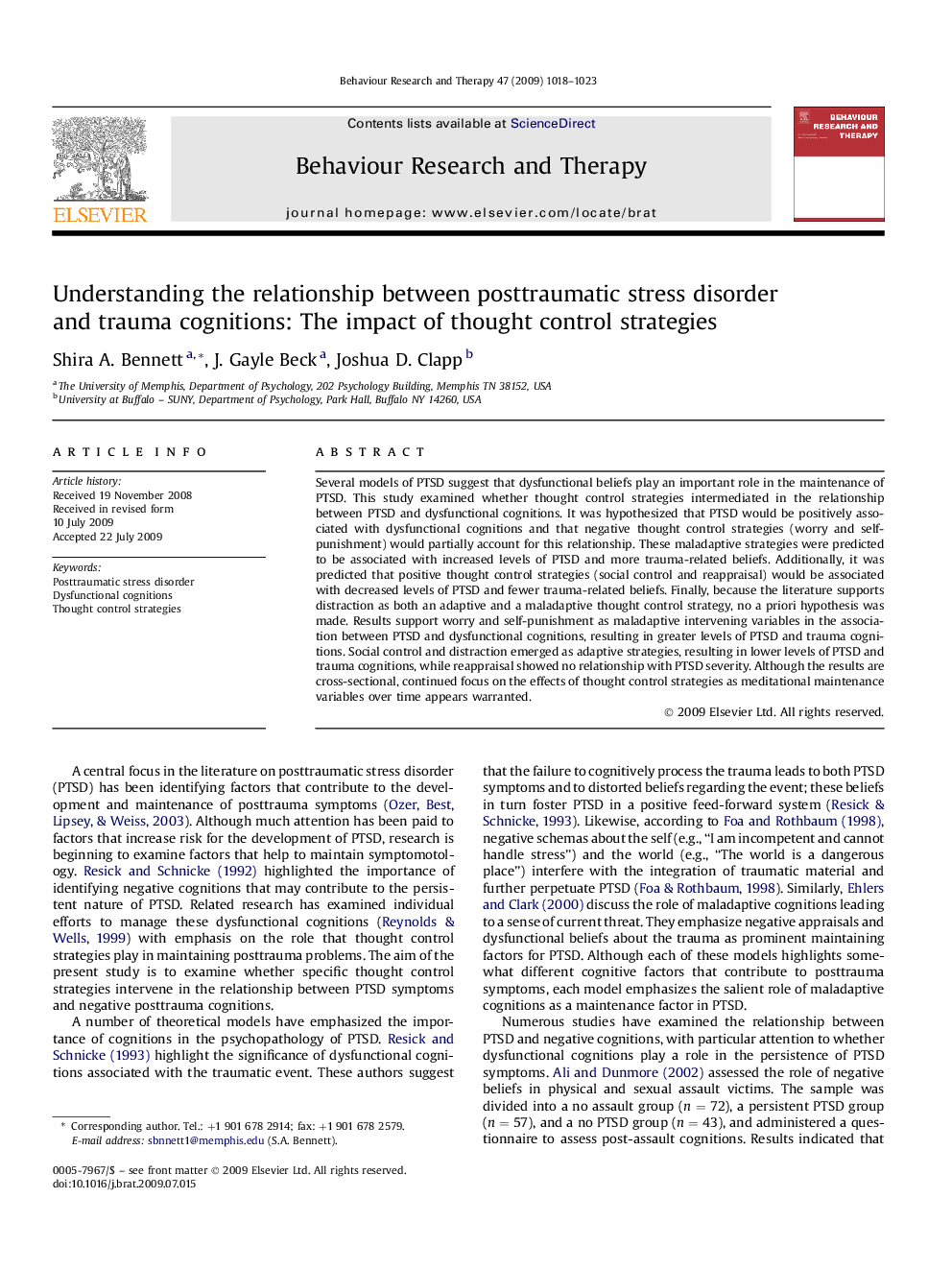| Article ID | Journal | Published Year | Pages | File Type |
|---|---|---|---|---|
| 902156 | Behaviour Research and Therapy | 2009 | 6 Pages |
Several models of PTSD suggest that dysfunctional beliefs play an important role in the maintenance of PTSD. This study examined whether thought control strategies intermediated in the relationship between PTSD and dysfunctional cognitions. It was hypothesized that PTSD would be positively associated with dysfunctional cognitions and that negative thought control strategies (worry and self-punishment) would partially account for this relationship. These maladaptive strategies were predicted to be associated with increased levels of PTSD and more trauma-related beliefs. Additionally, it was predicted that positive thought control strategies (social control and reappraisal) would be associated with decreased levels of PTSD and fewer trauma-related beliefs. Finally, because the literature supports distraction as both an adaptive and a maladaptive thought control strategy, no a priori hypothesis was made. Results support worry and self-punishment as maladaptive intervening variables in the association between PTSD and dysfunctional cognitions, resulting in greater levels of PTSD and trauma cognitions. Social control and distraction emerged as adaptive strategies, resulting in lower levels of PTSD and trauma cognitions, while reappraisal showed no relationship with PTSD severity. Although the results are cross-sectional, continued focus on the effects of thought control strategies as meditational maintenance variables over time appears warranted.
